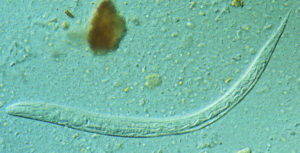
Antibiotic resistance and the development of novel antibiotics were, unsurprisingly, major topics at ECCMID 2017. Dilip Nathwani’s keynote lecture on antibiotic stewardship around the globe highlighted the need to extend the life of existing antibiotics as well as developing new ones. Novel innovations, such as India’s red line campaign, to reduce antibiotic consumption and the strides made by Mexico and Brazil in reducing their consumption were discussed.
Nobel prize winner Françoise Barré-Sinoussi gave her thoughts on what is left to be done to end the HIV epidemic. Although great progress has been made, since the discovery of HIV in the 1980s, in the treatment of AIDS and in reducing the spread of infections much more needs to be done. She particularly highlighted the need for basic science to underpin clinical research and the need to understand non-AIDS-related mortality in HIV-infected individuals.
Emerging viruses, such as Zika and Ebola were the focus of a number of talks with Janet Scott discussing the difficulties faced by Ebola survivors, many of who suffer from mobility and ocular issues. Do we need to consider these conditions when providing therapy during the acute phase of illness, and could sepsis experts help?
Zeno Bisoffi made an impassioned plea for greater resources for the diagnosis and treatment of strongyloidiasis and encouraged involvement with the StongNet working group. It will be interesting to see the results of the ongoing systematic review that will provide information on the accuracy of

molecular biology techniques for the diagnosis of Strongyloides stercoralis infection.
Finally David Pride gave a fascinating talk on the human respiratory virome and highlighted the differences in viral communities in health and disease states. Do these changes drive disease or are the viruses bystanders?
The talks provoked as many questions as answers and made it clear this is a field constantly looking to the future and how we can do more to reduce the global burden of infectious diseases. We look forward to ECCMID 2018 to find out where we’re heading next.
Related blogs:
Assessing real-time Zika risk in the United States
Comments